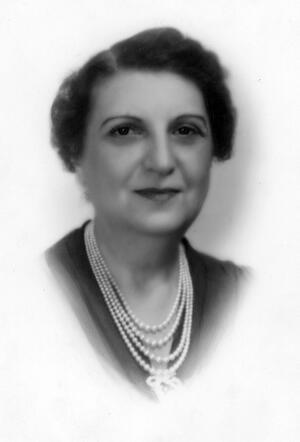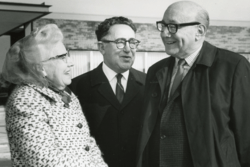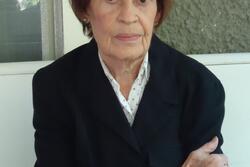From the Archives: Blanche Hart, the Jane Addams of Detroit
This article is part of the series From the Archives. From the Archives highlights primary sources that have changed the course of history, for an individual, a community, or the world.
The year Blanche Hart was born, the United States celebrated its 100th birthday. The telephone was patented, Mark Twain published The Adventures of Tom Sawyer, and the Transcontinental Express train traveled from New York City to San Francisco in just 83 hours and 39 minutes.
It was 1876. Women could not yet vote. Their options for higher education were limited to the few schools that would accept women, and the curriculum at those schools was often inferior to their male counterparts. Women were expected to be wives and mothers, and there was limited career opportunities outside the home.
By the beginning of the 20th century, more (and better) educational choices were available to women, and an increasing number began to enter the workforce. Women were still largely excluded from traditionally male jobs and were relegated to positions like secretaries, shop girls, and school teachers. Management roles were rare.
But Blanche Hart was a natural born leader. Through her synagogue, she became involved in poverty relief efforts, in particular helping train women in domestic science. Then, in 1902, she and her friend Ida Kopple decided to take needy children (mostly Jewish children of Eastern-European descent) to Belle Isle for a day of “fresh air.” This island park on the Detroit River was a refuge from the congestion of the city. Here, the children could run, play, and receive a hearty meal. Following the day’s success, Hart and Kopple founded the Fresh Air Society.
In 1903, at the age of 27, Hart took over as superintendent, the equivalent of today’s executive director, of the United Jewish Charities of Detroit (UJC). She was the first – and remains the only – woman to hold this position.
The UJC was founded in 1899 to centralize fundraising and coordinate programming among local relief societies. When Hart took over the organization in 1903, approximately 5,000 Jews called Detroit home. That number exploded as millions of Eastern European Jews fled brutal pogroms and immigrated to the U.S. By the time Hart stepped down in 1923, Detroit’s Jewish population had reached 35,000.
As superintendent of UJC, Hart was instrumental in providing services to newly arrived immigrants, from housing to English classes to job skills training. She was tasked with raising the money to offer these programs at little to no cost to Detroit’s newest citizens.
With Hart at the helm of the UJC, the Fresh Air Society began to receive funding in 1904. In addition to taking deserving children for outings during the summer, their mission expanded to include providing milk, ice, and food to the sick and needy. Hart further advocated for a clinic in the Hannah Schloss Memorial Building, which was also home to the UJC. The ladies of the Fresh Air Society offered to run the clinic. Treatment was free for the poor and ranged from physical wellness exams to clinical departments to dentistry. Hart monitored the clinic closely and in 1922 helped locate new, larger quarters. This enlarged space would become known as the North End Clinic, a pre-cursor to Detroit’s first Jewish medical center: Sinai Hospital.
Hart left the UJC in 1923 and opened the Blanche J. Hart Hat Shop in Detroit. Years later she moved to Rochester, New York, where she died in 1949.
More than 100 years have passed since Hart redefined traditional roles for women. Yet, in many ways, today’s workforce resembles the one she entered in 1903. Sure, women now outnumber men in the United States by about five million. But according to the U.S. Department of Labor, the most common professions for women employed full-time are secretary, teacher, and nurse. And in the Fortune 500 arena, only 27 companies are led by female CEOs. Yes, that is a record level. It is also only 5% of all CEOs.
Blanche Hart was a woman who defied expectations and held a position of power in a time when men ruled. Some might argue that men still rule. Blanche Hart didn’t let that stop her. Neither should we.







